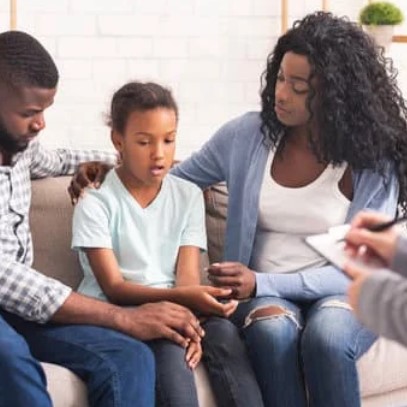
Family difficulties, school problems, or growth delays, the reasons for consulting child psychologists are increasingly numerous and diverse. But what can we expect from these consultations, and when should they take place? These are some of the questions parents may ask themselves.
Why should my child consult a psychologist?
It is impossible to list here all the reasons why parents consider consulting a psychologist for their child. The general idea is rather to be attentive and to know how to spot any symptom or abnormal and worrying behaviour in a child.
The first signs of suffering in children and adolescents can be harmless (sleep disorders, irritability, etc.) but also very worrying (eating disorders, sadness, isolation, etc.). In reality, as soon as the child encounters a difficulty that he or she cannot resolve alone or with your help, you must be vigilant.
To help you understand what the reasons for consultation may be, here are the most common ones, according to age:
- For children under 3 years of age, it is most often a question of developmental delays and sleep disorders (nightmares, insomnia, etc.);
- With the start of school, some have difficulty separating from their parents or have great difficulty concentrating and/or socialising. Potty training problems may also appear;
- Then in the first and second grades, certain problems, such as learning difficulties, dyslexia or hyperactivity, become apparent. Some children also start to suffer from somatic complaints (headaches, stomach aches, eczema, etc.) to hide deeper suffering;
- From the beginning of secondary school, other worries appear: mockery and exclusion by other children, difficulties in doing homework, poor adaptation to a school for "grown-ups", problems linked to adolescence (anorexia, bulimia, drug addiction, etc.);
- Finally, the arrival at secondary school sometimes causes difficulties in choosing an orientation, opposition with the parents or worries related to sexuality.
It is difficult for parents to judge whether or not their child needs psychological help. If you have any doubts, do not hesitate to ask for advice from the people who are involved with your child on a daily basis (nursery assistants, teachers, etc.).
When should my child see a psychologist?
Most often, parents consider consulting a psychologist when one or more members of the family cannot cope with the situation. The stage of the first symptoms is long past and the suffering is well established. It is therefore quite difficult to assess, quantify and advise a specific period for starting consultations. If you have any doubts, you can talk to your child's paediatrician or general practitioner for advice and possibly specialist contacts.
And above all, follow your instincts! Your child's first psychologist is you. At the first sign of a change in behaviour, the best thing to do is to communicate with your child. Ask them questions about their life at school, their feelings and sentiments. Try to open up a dialogue to help them unburden themselves and confide in you. This is the first real step towards helping them to get better.
And if, despite all your efforts and all your attempts to communicate, the situation remains blocked and his behaviour is different from what you are used to, do not hesitate to consult a specialist.
What happens during a consultation with a psychologist for a child?
Before the first session, the role of the parents is to explain and reassure the child about the course of the appointment. Tell them that they will be meeting a person who is used to working with children and that they will have to draw, play and talk with this person. The fact that the consultation will be less dramatic will allow him to envisage it calmly and to put all the chances on his side for a rapid outcome.
The duration of the follow-up varies greatly depending on the child and the problem to be treated. For some children, the word will be released after one session, while others will take more than a year to confide in us. But one thing is certain, the younger the child, the shorter the therapy.
At the same time, the role of the parents is crucial. Even if you are not present at the appointments, the therapist will need to be able to rely on your motivation and to make sure that he/she has your agreement to interfere in your family life by questioning the child and to be able to give you some constructive advice.
For therapy to be successful, the whole family must be involved and motivated.
You may also like to read / También te puede interesar leer
- What is narcissistic personality disorder?
- Emotional dependence and lack of self-confidence
- What is narcissistic personality disorder?
- How to become a good leader?
- Left-handed people are exceptional: Science says so
- What is the difference between the novel and the short story?
- Interesting Conversation Topics: Questions to Ask
- How to improve your concentration when working or studying

